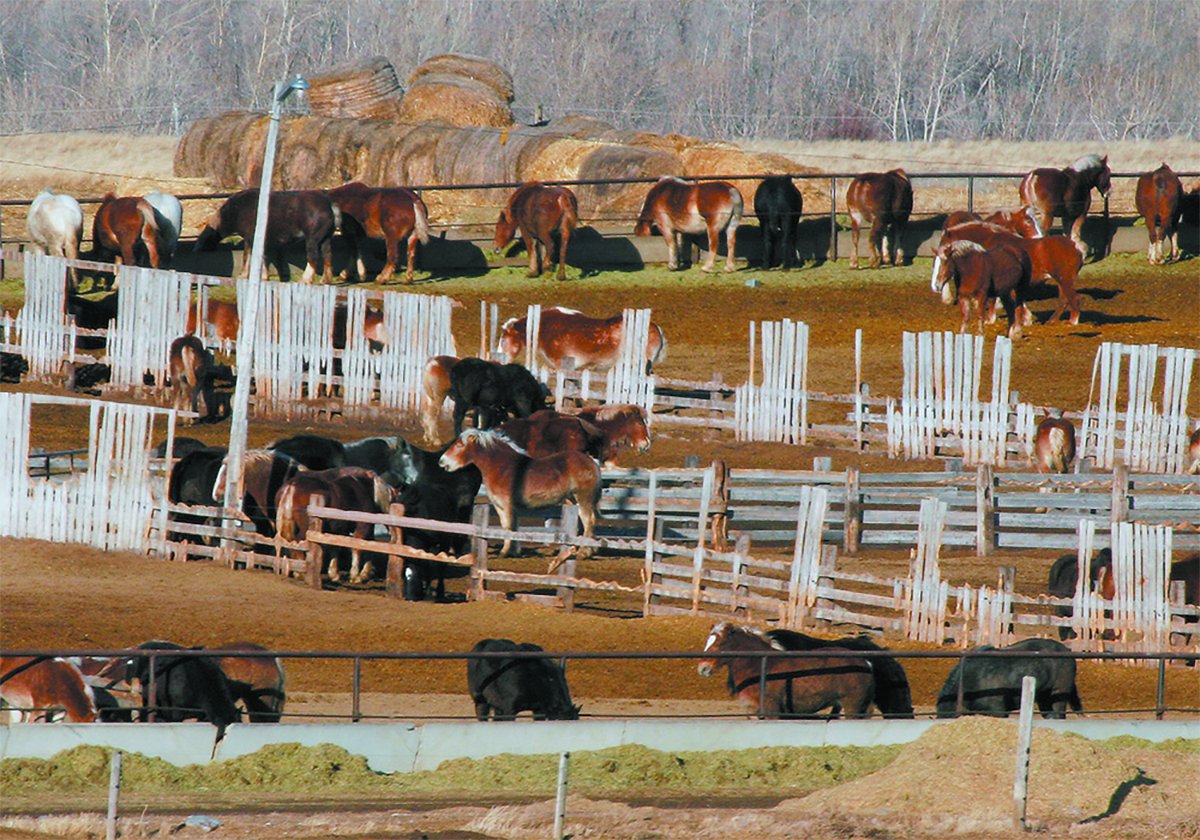PENTICTON, B.C. – Country-of-origin labeling is a needless expense and a non-tariff trade barrier that could be challenged, says the vice-president of cattle procurement for Excel Beef.
“We believe in a standardized grade and standardized quality evaluation of cattle in North America,” said Ken Bull of Cargill’s head office in Witchita, Kansas.
Country-of-origin legislation is before the American Congress and is sponsored by the northern tier states of Montana, Wyoming, Idaho, North and South Dakota.
Bull said it could get attached to some other popular piece of legislation and become law.
Read Also

Canada’s slaughter horse industry lacks transparency
The lack of clear reporting and public access to data keeps the industry largely hidden, leaving questions about humane treatment and traceability unanswered.
He told the Canadian Cattlemen’s Association convention in Penticton that the legislation could force packers to stop using the United States Department of Agriculture grade and go with their own house brands. Grading is voluntary in the U.S.
Companies like Excel oppose this legislation and say it is tied directly to preventing slaughter cattle and beef exports from Canada.
“It will be very difficult for us to continue bringing live cattle and carcasses from Canada,” said Bull.
Companies handling Canadian cattle would have to separate them at the plant by running different lines from the kill floor to the point where the meat leaves in a box.
Bull expects this could cause further consolidation of packing plants because smaller plants could not afford to make the adjustments even though they depend on Canadian cattle to keep running.
Costs involved
The American Meat Institute estimates proposed labeling changes would cost processors and retailers $1 billion (U.S.) to implement. Meat inspection service costs could increase by $60 million (U.S.).
In addition, if the country of origin is required, the law may require a complete list of hormones, antibiotics and other additives.
Bull believes trade action will be taken and the U.S. is jeopardizing its export markets in Canada, Japan and Mexico by taking these steps.
The National Cattlemen’s Beef Association supports the legislation, claiming cattle are being laundered through the system.
“The U.S. producer today believes that USDA grade does not mean it is the best in quality. It means it is a trademark and is a brand of the U.S. producer,” said Bull.
Live cattle or beef sent to the U.S. and receiving the grade does not return value to an American producer the same way home-raised beef does.
U.S. producers want labels applied to cattle born and processed in America. They do not want the USDA quality grade affixed to any foreign carcasses or cattle that are processed in their country.
They say consumers have the right to know where their food comes from and labeling provides additional assurances of safe food.
George Hall, president-elect of the National Cattlemen’s Beef Association, agreed. He attended the CCA meeting in Penticton.
Canadian beef is sold to U.S. consumers as U.S. beef whereas Canada labels its beef in other countries as product of Canada. Therefore, it should appear in the U.S. under the same kind of labeling, he said.
The NCBA wants a U.S. beef label that indicates quality and doesn’t want it diluted with imports even if Canadian beef is only three percent of the U.S. market.
“The USDA grade has become synonymous with quality and we’ve established a significant brand identity,” said Hall.

















